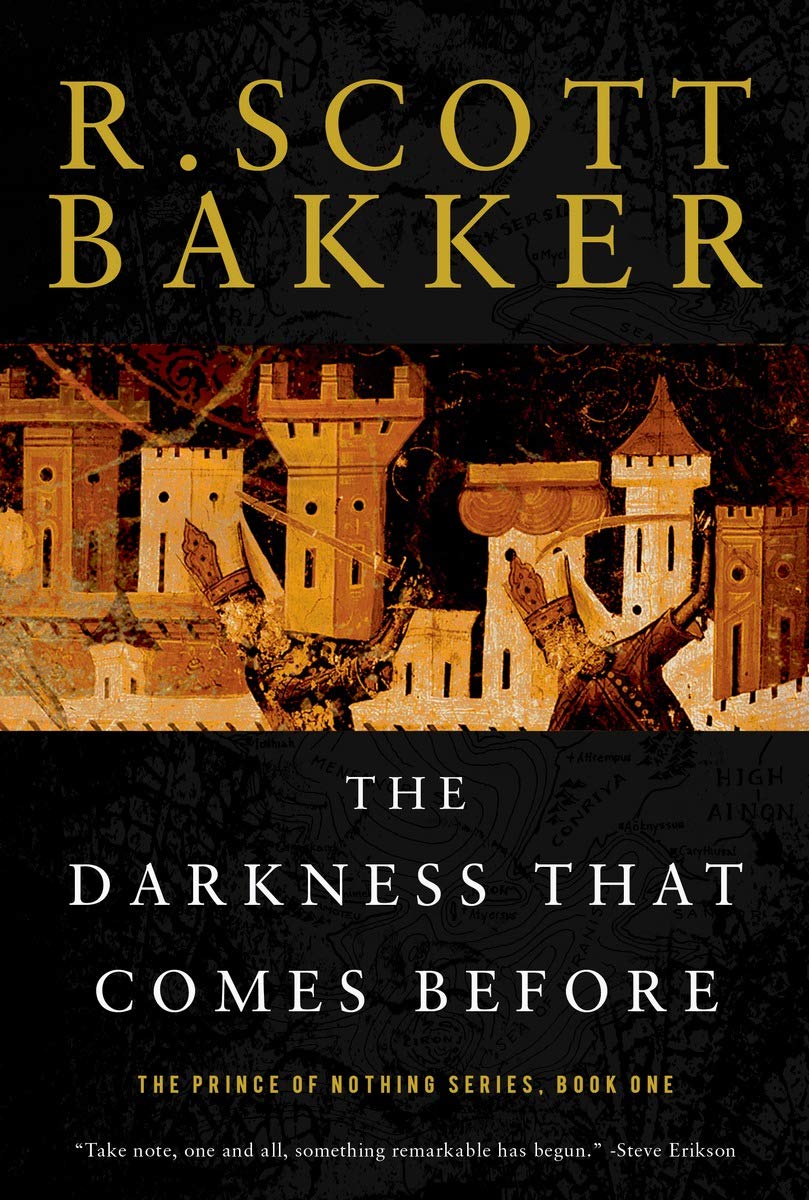
Top 30 Cartoon Characters That Were Villains
Our list rounds up the top 30 cartoon characters that were villains, each one more wonderfully wicked than the last.
Fantasy
The Darkness That Comes Before is fresh and unique, bursting with ideas from a vivid imagination that reads like a fever dream.

Majestic, sprawling, and surrealistic. The Darkness That Comes Before is a sweeping epic setting that evokes visions of a post-apocalyptic world that is brutal and frightening in its misogynistic antipathy. It shares a lot with our world but also differs significantly.
“If it is only after that we understand what has come before, then we understand nothing. Thus we shall define the soul as follows: that which precedes everything.“
AJENCIS, THE THIRD ANALYTIC OF MEN
The Darkness That Comes Before is a tale about a holy war, told to incite emotions about humankind’s intolerance (ideological, racial, intellectual) against fellow men. It is also a tale about a protagonist (not often seen), Anasûrimbor Kellhus, an anti-hero that is part warrior, part monk, part philosopher, and part mystic from land and peoples that had been largely forgotten by the rest of the world after a cataclysm two millennia past and his quest and chronicles in wresting order from the jaws of chaos.
It is a tale about a harlot named Esmenet who dared to reach for the skies, places, peoples, and emotions denied her. It is about the darkness that comes before…
The world-building is, as the blurb says, “a whole world, culture, languages, and maps from whole cloth.” The Darkness That Comes Before is fresh and unique, bursting with ideas from a vivid imagination that reads like a fever dream. The prose is poetic, dense, and descriptive; the characters are self-reflective and told in multiple POVs that somehow work seamlessly… simply put, it’s incredible. A book that has been put together with a lot of forethought and hard work.
I’ll highly recommend this for readers that enjoy fantasy with a GrimDark flavor that is unique and in a world unto itself. I leave you with another quote from the book that speaks far more meaning than that contained within the words:
“To grasp what came before was to know what would come after. And to know what would come after was the beauty that stilled, the hallowed communion of intellect and circumstance—the gift of the Logos.”
P.S.: You can find my review of The Warrior Prophet, the second book in the series, here.
An obsessive compulsive Sci-Fi/Fantasy enthusiast || INTP hermit || Lover of all things Esoteric and Arcane

Our list rounds up the top 30 cartoon characters that were villains, each one more wonderfully wicked than the last.

DC is great at making comics and animated movies, while the MCU has the upper hand in its cinematic aspects

Discover the best apps to read books for free in 2025. Access thousands of free e-books and audiobooks on your phone or tablet. ...

There are some outright funny cartoon characters who exist solely to crack you up, loud, hard, and with zero apology.

Things Fall Apart is for the colonizers as well as the colonized, helping to understand the role of colonialism in the realization...

While many of the Nollywood movies on our list are quite old, it’s a testament to the capabilities of the industry’s p...

While this isn’t an exhaustive list, it comprises some of the most popular mythical creatures from around the world.